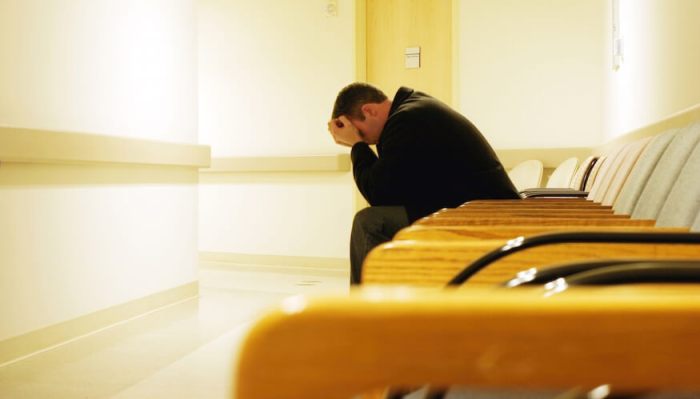While antidepressants are often the go-to treatment for many people with depression, some experts say that natural remedies represent an overlooked option.
3 ways to treat depression naturally

iStock
According to Dr. Peter Bongiorno, a naturopathic doctor and acupuncturist, antidepressants may not be the best option for people with mild to moderate depression.
“In 2010, something was published in the Journal of the American Medical Association that showed that in mild to moderate depression, which is the majority of cases, antidepressants really didn’t work all that better than placebos,” says Bongiorno, author of “How Come They’re Happy and I’m Not?”
The story isn’t the same for major depression. (In these cases, Bongiorno says that antidepressants can be life-saving.) Either way, he adds that an effective treatment plan should address the underlying root cause of the problem—otherwise, all the remedies in the world will only serve as a Band Aid.
“Stress over things we can’t control, mixed with not taking care of ourselves physically are really the root issues for most people with depression,” he adds.
If you’re one of the over 350 million people in the world suffering from depression, Bongiorno says these natural approaches are known to improve symptoms.
OPTIMIZE YOUR DIGESTION
A lot of people don’t know that poor digestion and depression are actually interrelated. “Ninety percent of the body’s serotonin is actually made in the gut,” says Bongiorno. “So if we’re not dealing with getting that system healthy, it’s really hard to get the brain healthy and get the mood right.”
He adds that more and more research is touting the benefits of taking probiotics. Bongiorno cited a recent study in which the flora was taken out of the digestive tracts of mice. The result? They produced 60 to 70 percent less serotonin, which affected their mental health.
“I recommend getting a good probiotic; it’s very balancing to the whole body and the brain,” says Bongiorno.
TAKE A LOOK AT YOUR SLEEP HABITS
Sleep problems and depression often go hand in hand. According to the National Sleep Foundation, it’s kind of a chicken-or-the-egg scenario. (Does depression cause insomnia, or is it the other way around?) Either way, the two issues are closely linked. In fact, the NSF reports that people with insomnia are 10 times more likely to develop depression when compared to those with healthy sleep habits. Obstructive sleep apnea is also connected to depression.
It stands to reason that improving your sleep habits could, in turn, curb symptoms of depression. According to the National Institutes of Health, turning off electronics, avoiding alcohol, and going to bed at the same time every night are all great ways to naturally treat insomnia. In extreme cases, cognitive behavioral therapy can also make a big difference.
STEP UP YOUR EXERCISE ROUTINE
Bongiorno says that getting regular exercise can significantly improve depression symptoms. This is especially true if you’re able to exercise outside.
“Vitamin D and sunlight are important for setting our circadian rhythm and are helpful in getting the stress system back in balance, so getting outdoors and getting into nature can be very helpful for our mood,” he says.
The second part of the equation is to be mindful of your diet. Eating junk food and drinking sugary beverages are directly linked to depression.
“If you’re not doing the basics—the sleep, the diet, the lifestyle, the stress work—it won’t be enough to really get to the root of the problem,” adds Bongiorno. “But if you do them all together, you’ll get the best results. I also like using acupuncture, which I think is a wonderful way to help people get balanced.”


















